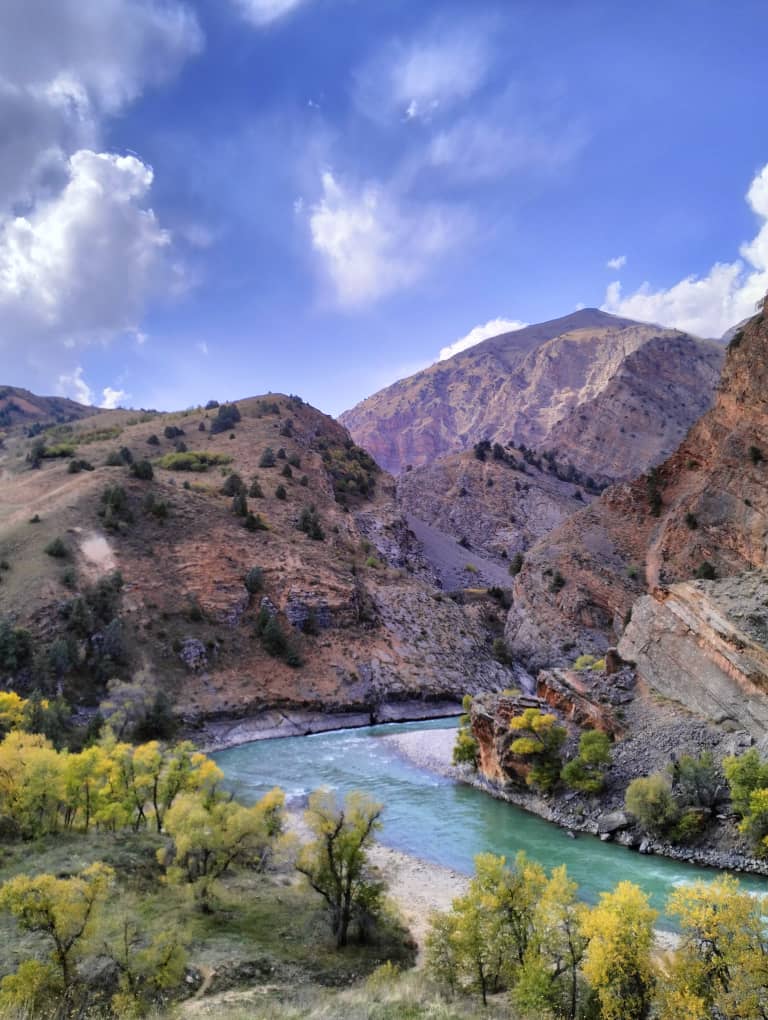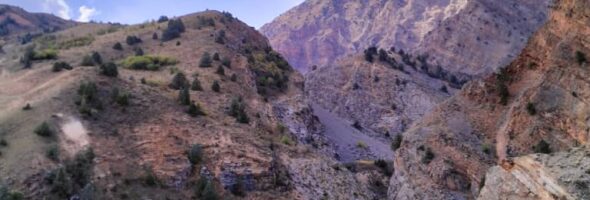The international environmental coalition “Rivers without Boundaries” has raised alarms over the potential destruction of a UNESCO World Heritage Site in Kyrgyzstan. The organization has appealed to the UNESCO World Heritage Committee and the International Union for Conservation of Nature, expressing concern about the Kyrgyz government’s proposal to exclude the Chatkal River floodplain from the Besh-Aral State Reserve for the construction of hydroelectric power stations.

The Besh-Aral Nature Reserve is a crucial component of the transboundary UNESCO World Natural Heritage Site known as “Western Tien Shan,” spanning the territories of Kyrgyzstan, Kazakhstan, and Uzbekistan. The reserve is now under threat due to the Kyrgyz authorities’ plans for extensive hydroelectric development, gold mining, and road infrastructure construction within its boundaries.
Kyrgyzstan’s proposed hydroelectric project involves the construction of two power stations: the Srednechatkalskaya (Barkraukskaya) hydroelectric power station with a capacity of 350 MW and the Nizhnechatkalskaya (Min-Tukumskaya) hydroelectric power station with a capacity of 700 MW. The Chatkal River valley, within the Besh-Aral Reserve, is earmarked for significant alterations, including the creation of two reservoirs and a diversion corridor or tunnel.
Environmentalists argue that such actions would have severe consequences for the natural ecosystem, especially impacting aquatic ecosystems and organisms. Evgeniy Simonov, the international coordinator of “Rivers without Boundaries,” emphasizes the potential threat to migratory species like the Marinka (Snow trout) and the rare Chatkal sculpin.
“The destruction of the central river ecosystem of the reserve will not only have a devastating effect on the natural complex of the Besh-Aral reserve but will also cause irreparable damage to the outstanding universal values of the UNESCO World Natural Heritage Site ‘Western Tien Shan,'” warns Simonov.
Experts from the Institute of Biology of the National Academy of Sciences of Kyrgyz Republic echo these concerns, emphasizing the potential changes to the hydrological regime and the significant damage to plant and animal species listed in the Red Book.
Alexander Kolotov, the coordinator of “Rivers Without Boundaries” for Central Asia, suggests that alternative locations for hydroelectric projects exist within Kyrgyzstan without conflicting with protected natural areas.
“In the case of the hydroelectric power station on the Chatkal River, it should be understood that causing damage to UNESCO World Heritage sites is prohibited not only by the international World Heritage Convention but also by the internal rules of most international banks and investment companies,” notes Kolotov. The appeal to UNESCO raises the possibility that such actions could impact Kyrgyzstan’s eligibility for international loans for hydropower development.
President of Kyrgyzstan Sadyr Zhaparov on November 10, 2023 within the framework of a working visit to Paris met with the Chairman of the Board of Directors and CEO of Électricité de France (EDF) Luke Remont and urged him to participate in the creation of a cascade of hydropower plants on the Chatkal River. Participation of the French state company in this hydropower construction could be interpreted as a breach of the World Heritage Convention.
UNESCO recognizes the transboundary World Natural Heritage Site “Western Tien Shan” as part of the Central Asian Tien Shan mountain system, one of the seven largest mountain ranges globally.
Source: Daryo.uz and the RwB’s appeal to UNESCO


